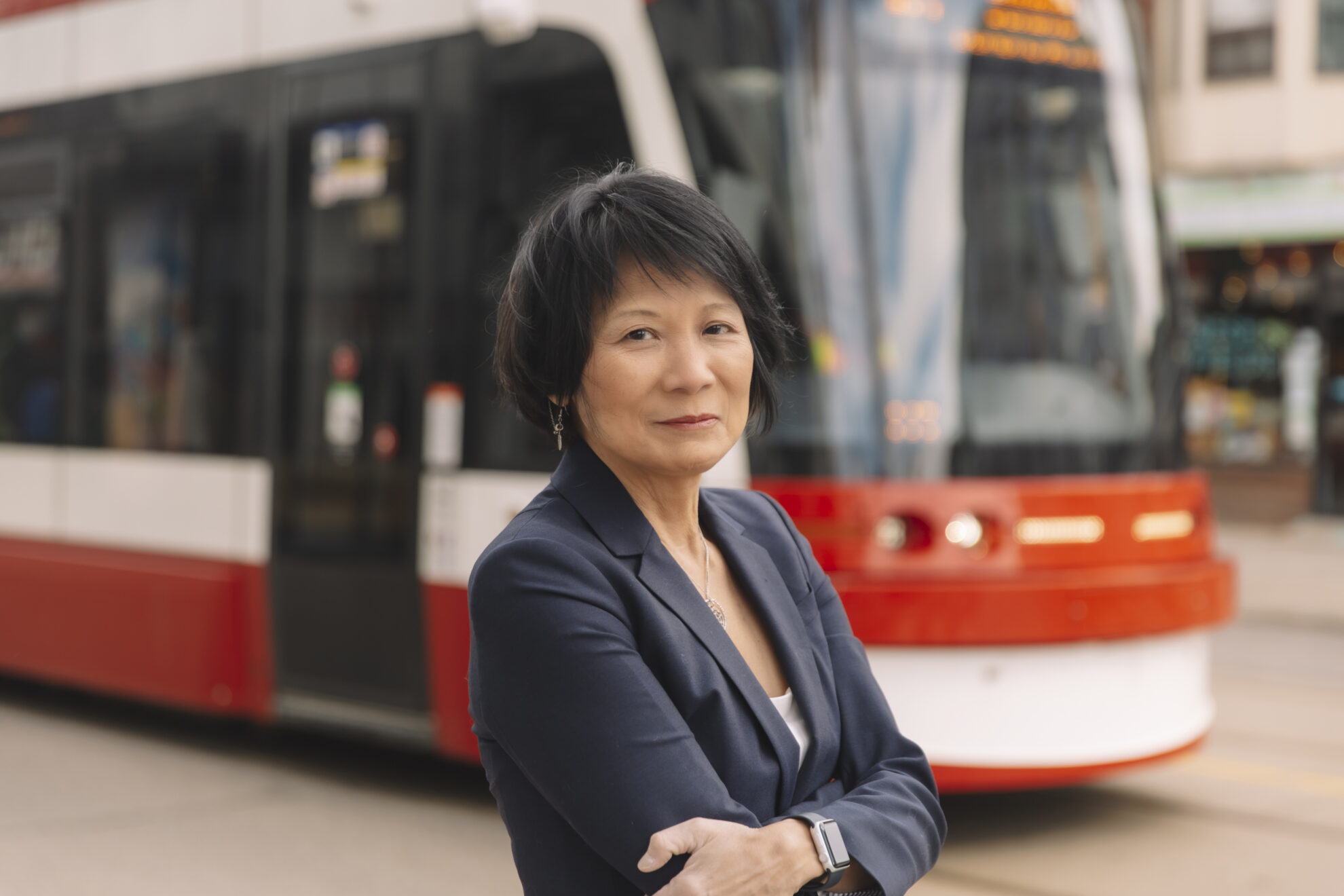Building a caring, affordable and safer city for everyone, a city where everyone belongs, is Olivia Chow’s mayoral campaign theme. Moving to Toronto when she was 13, Chow’s family settled in St. James Town and survived on a single parent’s income.
Winning her first election in 1985, Chow served on the Board of Education for six years and in 1991 became the first Asian-born woman elected to council. In 2006, Chow won election as a downtown MP, introducing legislation for universal child care and to improve public transit. She married former councillor and federal NDP leader Jack Layton, but in Toronto’s 2014 mayoral election, finished third to John Tory and Doug Ford.
Transit is the “lifeblood of the city,” Chow said; she uses it herself. She committed to reversing recent TTC service cuts and improving the rider experience. She would hire additional TTC staff, introduce cell phone service and increase transit options. When the Scarborough RT shuts down next fall, she wants express buses on the elevated RT route to save commuters 20 minutes each day.
Regarding transit projects delivered by the province, Chow said she will advocate for more consultation and communication with residents.
On community safety, Chow is committed to expanding the successful Toronto Community Crisis Service, which connects people in crisis with trained mental health experts, from 60% coverage of Toronto to 100%. She also proposes an Emergency Response Transformation Team to improve 911 response times.
To address community safety , Chow stressed in an interview that providing housing is essential, her most important priority. Some Torontonians struggle to afford housing, which Chow argues is a direct result of the City of Toronto walking away from building housing or facilitating its creation. Her plan includes building 25,000 rent-controlled units in eight years. Of this additional supply, Chow will ensure 7,500 are affordable units and at least 2,500 rent-geared-to-income units. In addition, regulatory and land-use guidelines need to be relaxed to create “missing middle” housing and intensification near transit hubs, she added.
Asked if she will use strong mayor powers provided by the provincial government last year, Chow firmly declined, citing her experience working across the political aisle throughout her career.
Contact: info@oliviachow.ca




